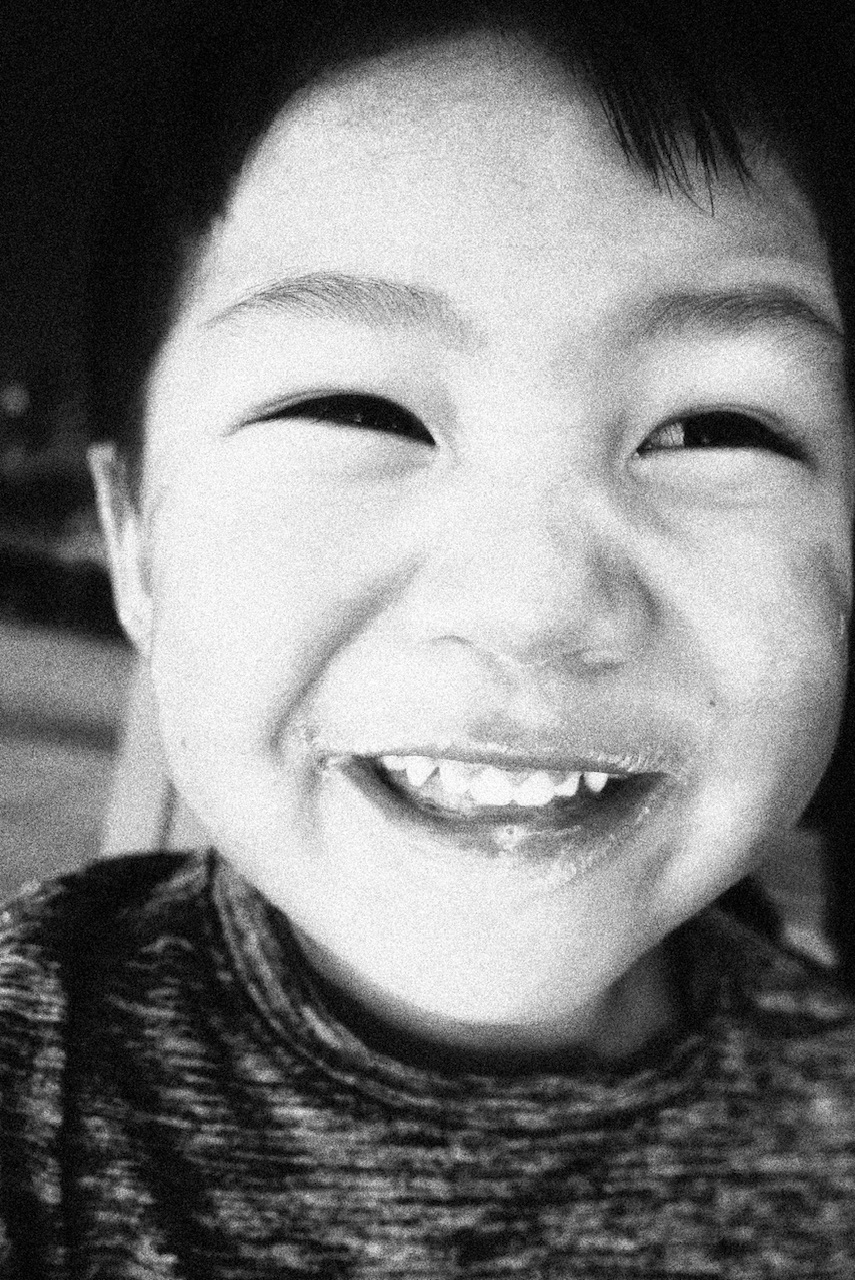Some capital thoughts:
OK, it seems that what a lot of us seek is maybe fulfilling a curiosity gap, purchasing something because we think it will boost our happiness, etc. But is this ever the case?
No!
At the age of 36, I’ve achieved all my life goals, pretty much purchased everything I’ve ever really wanted, and this is my big lesson:
No matter how good the stuff you purchase, sooner or later, you will quickly tire and bore of it. 
Perhaps it is human nature. And this is how we were hardwired.
However, I think the pernicious effect of consumerism and maybe capitalism is that we have this false belief, this false reality that purchasing XYZ will make us “happyâ€, or give us everlasting bliss. 
Or, that having ex amount of income or money in the bank or whatever will make us “happy“, or give us a feeling of security? 
Male vs Female capital
This is what I generally observed; through money in capital, women seek a sense of security, belonging, or to be appreciated or desired?
For example, if you look at all these sexy girls on Instagram or whatever… Or women who spend too much money on clothes, what is it that basic? Acceptance, to be perceived as beautiful, to be desired or desirable.
Also it seems that with women, the desire of purchasing a home, a single-family home a condo whatever, is a sense of security.
For men, it seems that we think of as a form of power, power augmentation, and maybe what we conflate is power with happiness?
What if… power and happiness were not the same thing? But different? 
What if the fact was in order to become more powerful, you had to become more unhappy? Or conversely… That the most people were actually the least powerful?
Question; would you rather be the unhappy dragon, or the happy cow?
How to switch things up
My neighbor, successful Silicon Valley, google employee, about my age, single, no kids, not yet married, has a girlfriend, seems that he just treated out his old Audi S3 sport for a Porsche 718 sport. And it is funny… Although the engine or the exhaust of the Porsche sounds way cooler, in terms of aesthetics, not much of a difference.
Actually, the more I look at the Porsche 718,  the more I hate the design. The rear end of it looks terrible!  and assuming that you’re a normal human being who always parks their car nose in, butt out, what that means is almost 100% of the time, you’re going to be staring at your car from behind.
My personal thought is the best designed Porsche car from behind is certainly the Porsche 911 with the singular blade light. And it also seems that the new Porsche 911, which I think might have a hybrid in it, has a more aesthetic looking tailpipe design.
Anyways, the problem with design is as good as the design is, it will never less. For example, even my film Leica MP, black paint, fully mechanical, mechanical perfection, with the Leica 35mm f2 Summicron Lens — yeah it is super nice, and essentially the design is perfect ; it is probably the perfect design because it is 100% mechanical, you don’t need a battery for it to take pictures, or operate. The only battery thing in it is the light meter, which is insanely useful. The film Leica M-A does not have a light meter, which almost seems more like a aesthetic exercise, not a practical one. Having a built-in light meter is insanely useful.
Make it as simple as possible, but not simpler.
This is why I still think that the film like a MP camera is the most best, the most supreme, because you don’t want to be taking the light meter out of the camera, very much how Rico foolishly got rid of the built-in flash. The Ricoh GR II with the built-in integrated flash is still probably the best one, I think about all the great photos I saw with it, using the built-in flash. The Ricoh GR III/X also insanely great, but still… It seems that the wise optimization is making a little bit bigger, and put back in the flash, rather than just trying to make it super super small, but getting rid of an insanely useful thing, like the built-in flash.
Kind of like if you’re a man, and you’re trying to “lose weightâ€, and you decide to chop off your penis in your balls in order to “lose†a pound. Not a good idea.
Simple ideas
I think what we humans have a joy in is change over time, or before and afters.
For example, who is happier? The guy who starts off with the salary at $40,000 a year, and gets a pay raise to $80,000 a year? Or to the guy who makes $1 billion a year, and then his income is reduced to only $10 million a year? Obviously the person in the second scenario is in the far superior economic financial position, but will probably feel miser miserable compared to the guy with a more modest income, who had a massive jump!
And this is also the funny thing… It is all relative! For example, when I was in college, $3000, $5000, $7000, $10,000, were an unfathomably big number to me. But now, I’m chasing 1.2 million, 2.5 million, $10 million and beyond.
Also, I guess it’s good that I’ve built a more stoic mindset when it comes to money, for example, if I randomly see my bitcoin balance dip $200,000 or $300,000 down, it doesn’t really bother me that much, whereas in the past, even seeing my money go down $500 or $1000 dollars was like being kicked in the balls. 
Wise economics
Very very simple, if you want shits and giggles, never buy anything, either rent it, test drive it, maybe even leasing it might be a better idea. Why? Instead of dropping $80,000 on a brand new car, to just lease it for two or three years, and get it out of your system, might be a better bet than Pissing away all that money that you could otherwise put into bitcoin, and have it 1000X from here. 
Also, I think one of the joys I have on living very very close to two car dealerships is that I always walk by the cars, and the funny joy is I don’t really feel like I have the need to actually own it; because I could just look at it, it feels like I metaphorically own it!
For example for a while there was a cyber truck here, and I will look at it every single day, and even the cyber truck, as much as I love it, I eventually bored of it. Even now, I used to be super super excited when I would see a cyber truck on the road, And now, even though it brings a small to my face, it doesn’t bring me the insane excitement that it did before.
All
I think this applies to cars women, your bank account account balance balance etc.
No matter how good grand perfect or whatever… Sooner or later you will bore of it. 
For example, in regards to women… No matter how beautiful the woman is, sooner or later, assuming that you only got with the woman only for her beauties… Assuming that you just wanted to bet her indefinitely, I could almost guarantee you 100% that After a few fun nights, you will tire and bore.
Same thing with owning that Lamborghini; I actually had the realization, now that the Hurucan and the Aventador has been outdated and replaced… None of the new Lamborghinis have any appeal to me, practically zero. What I then realize is the whole time, I didn’t really care for the Lamborghini so much, as for what it stood for,  ultimately the only reason why Lamborghini was cool in the first place was because of Kanye West. And as much as people like to ignore, all modern day rappers are all disciples of Kanye West. Even Travis Scott, who was the most raging success, was discovered by Kanye and promoted by Kanye.
Even apparently Adidas,,, who apparently asked their contract with Kanye because of Kanye‘s controversial “antisemetic†remarks, they are now selling his Yeezy sneakers at a 70% discount!  it shows that I guess then Adidas… They are a bunch of scumbags, and they don’t really support anti antisemitism, – if they really really cared, they would just throw all of the unsold Yeezy supplies into the furnace, because it would be unethical to in for a profit. So ultimately, guys, all corporations and companies, and publicly treated companies have no morals and ethics, why?  if Adidas truly truly did support the Jewish community and if Adidas was truly anti-Kanye West for his anti-Semitism they would never ever ever continue to sellthe Yeezy sneakers, even to  sell off the unsold supply. The ethical thing would have been to either burn or shred the unsold Yeezy supply. 
How to switch it up
Very very simple thoughts: first, before selling your car or trading it in for something new, just wash your car, and wax it! Also a very very simple modification you could do to your car is to purchase some Matt Black paint primer, rust oleum, or a shiny glass black paint, and just spray paint your rims either a mat black, gloss black, or satin black. 
Also ironically, the best mod you could do is removal! For example, just buy some goo gone,  and the debadge your car, get rid of all the emblems! This is what I did to the 2010 Prius that I inherited, and aesthetically I love it so much more without the emblems! 
Also if you have an old car, get rid of the tent. You know sometimes the older cars when you have the low quality tent, in the tent becomes purple and starts to bubble? Yeah I get rid of that. Also that you really do have a race car or sports car, if you wanted to go faster, get rid of the power steering, air conditioning, And also the radio. And if you really really wanted to be a race car, get rid of all the sound deadening, interior stuff, rear seats, etc. And you could tidy up your engine bay just clean it up!
If you want a very very simple modification, just purchase some 3M matte black vinyl wrap, and just wrap your car! To wrap your car is very easy, it is just like a big sticker! My suggestion is just do it over some accents and small parts, not the whole car. Why? Even if you purchased the best car wrap on the planet, and have it installed by the best person on the planet, you take care of it with the best sprays cleaning supplies and products, and always keep apart in the garage whatever… Lifetime on these things are maybe 3 to 7 years tops?
And this is where I’m still a bigger fan of real automotive paint; assuming that you take care of care of a good paint job it might last maybe 20 years? Even 30 years? Assuming also it is a white paint job? And also don’t be a fool; black paint, even the best black paint never lasts, even if you have the best Mercedes car, or BMW or Lexus, sooner you will get the paint scratches, and when it is 100° in LA, you’re going to wish that you did not have that car. And if you do a simple physics test; let us say you live in Arizona or Las Vegas, if you have a black car in the dark sun it will probably not last you 20 or 30 years.
Then I suppose the question is how long do we want these things to last anyways? Do we really want them to last forever, or are we secretly waiting for it to break, either intentionally or unintentionally, to give us an excuse to “upgrade�
Upgrading is a scam
Some low-key unethical behaviors from Apple; she wants you to trade in your old iPhone, at an 80% loss, to upgrade to her newest most mediocre device, which will also probably be outdated in a year or two? 
Typically what I see a lot of people do is that they will find a reason to “upgrade†their phone by giving their old phone to their sibling, parents, etc.… But once again guys, this is a very foolish decision.
My simple thought is the only purpose of an iPhone is for FaceTime and Google maps. This, the iPhone is really quite a mediocre device. 1000,000,000,000 times better to have a iPad Pro, if you really want to be productive.
In fact, what is the modern Day iPhone Pro? Not a camera, if you really cared for photography you would purchase a standalone digital camera. If you really wanted to increase your productivity you would just buy an 11 inch iPad Pro. Maybe the iPhone, iPhone Pro, is just a mobile pornography device or perhaps a mobile distraction device? 
True happiness
My recipe for happiness is simple; sleep 8 to 12 hours a night, walk 30,000 steps a day, maximum time outside all day, never be stuck in doors, to play with your child with full vigor, to lift weights at least once in the day, to have a loving family, too fast all day and to only break your fast right before it is time to sleep, and to essentially have strength vicar and power all day long!
“Heemâ€
In Korean, there’s this notion of “heem‖ which just means vigor or strength.
Also, the notion of getting sick, like the common cold “gam-gee†is meaning that you lost your “gi†(the Chinese call it your “chiâ€).
The significance of it is that when you catch a common cold, it essentially you lose your strength, your power.
To me, the only thing I hate in the world is feeling tired, exhausted, weak, without vigor.  And even a simple thought; I think for a lot of men, the goals to get super super buff, super jacked, insanely muscular arms, whatever… Or to hit a certain inches for your biceps, your arms, to hit certain numbers for your lifts, to hit a certain weight, to hit a certain body fat percentage, whatever… But ultimately, the most critical thing here is having insane vigor, audacity, strength, and power! Physiological power. Nothing else matters.
This is where that takes away from your physiological is bad. For example, would you eject your seminal fluid, immediately before attempting to lift 1000 pounds? Probably not.
Also — no boxer would smoke weed, consume alcohol, taking any drugs or downers, immediately before the big fight! Even something I’m not sure… I don’t even think a boxer would drink coffee right before the fight? Why? Even something I discovered with public speaking, the worst thing you could do is to consume caffeine or an upper or a downer right before a big speech. Better to just drink a bunch of water and do it sober. Why? I’ve had an espresso before giving a public talk, or doing a workshop, or drinking coffee before workshop… And once I actually get into action, I become too stimulated, too much adrenaline. 
Apparently there are a lot of musicians, orchestra people, people in the band or whatever who all take these muscle relaxants, or these downers, or calming drugs before getting on stage to deal with stage anxiety… But this is also a bad idea because it will make you a bit slower, and you will lose your edge.
Water is best.
What if everything you believed in was false?
After watching the bigger stronger faster documentary on steroids, very eye-opening. Everyone is on some sort of steroid or drug! Even jetfighter, in the Air Force, “go pills‖ they take it like candy! Also, an interesting history of science book and medicine, “Blitzed‖ outlined how the panzer Blitzkrieg nazi tank operators, were essentially all high on cocaine and meth, in order to drive their tanks straight for three days without food rest or stopping. Even apparently, Adolf Hitler was high on all these drugs, and even had his own private doctor prescribe him all these anti anxiety pills and medicines —
And you see this in show business all the time — all of these super successful media personalities end up overdosing on heroin cocaine, or end up committing suicide? Anthony Bourdain, Robin Williams?
All media is bad.
This apparently happens a lot to child actors, think of Degrassi Drake — i’m sure being part of the whole whole factory of Nickelodeon at such a young age, was probably traumatizing. I would not be surprised if the truth was even the rapper Drake was sexually abused as a child.
This is where it is wise to assume that all show business is evil; never let your kids get into it, not for any sum of money or fame!
Facts
Let us do some simple mathematics, calculations, and thought experiments: let us say that for living, you depend on YouTube advertising. And you want to maximize your views your clicks, your walk-throughs, etc.… Certainly it will be your best interest to create things which are maximally controversial, Crazy, insane, as well as bad.
Also this is where we could consider Instagram for young girls almost like child pornography; if you are a young teenage girl, or even in your 20s, what maximizes views clicks followers etc.? Obviously things which are more sexual in nature. Very very creepy, let us see your daughter is on Instagram, and you have single 50 or 60-year-old men  calling her watching her videos, looking at her pictures, certainly you will not like that.
Physique is overrated
I’m starting to think, perhaps physique is overrated.
Why? Men and women who chase physique, will sooner or later do weird stuff.
For example —  men who see physique will eventually start injecting their butt holes with steroids. Women who seek physique will eventually start injecting their lips, their faces, also their butts.
Why do we care for physique so much?
Curious question… Why is it that we seek physique so much? 
Physique is the same thing like the exterior of your car, “All show, no goâ€.
I think my theory is that appearances physique is marketable. For example, let us say you have a sports car, and you have done no exterior modifications, and you have a “sleeper†car. 
Now a lot of people, they would spend all their money to modify the exterior of their car. Why? Because it is the only thing that will help you get likes on social media. Also, when you are on the road, it is the only thing that people could see. 
But the reason why when I was really into modifying my car, I only cared for engine mods was because when you’re driving your car, you could only feel the “butt dyno‖ for example, change over time, let us say you install a new short ram intake, headers, exhaust etc.… You will feel a difference in performance, but if you do some sort of exterior modification, you cannot enjoy it while you are inside your car driving.
The correct strategy
I think in life, the best and the most correct strategy is it is better to take a $2000 sports car, and slowly modify it, rather than already purchase a $100,000 vehicle. If your end objective is to maximize your pleasure happiness, and fun, this is the best bet. 
For example, don’t buy the loser Porsche 911 convertible, just buy an old Mazda Miata, 1990– 5 speed, manual, no air conditioning no power steering – and feel free to thrash it around as you like!
This is why I’m so happy with the 2010 Prius I got; I feel zero recompense on spray painting the rims, changing it up, and fucking around with it!
I suppose this is where the upside of cheap and free is; for example if you really wanted to become a fashion designer, just buy some insanely cheap clothes or free clothes, and take some heavy duty scissors and cut off the sleeves, make it a crop top whatever. Even apparently nowadays, the trend is jean shorts, â€jorts‖ which is very very easy to do if you just took your old jeans and just cut off the legs!
Fashion?
Fashion means how you make yourself.
Facere– to make.
The simple bifurcation of fashion:
With clothing and fashion, are you trying to highlight your beauty, or hide your ugliness? 
For example, it seems that the whole genius of LA girls just wearing leggings all the time, especially when they just wear white leggings, is for them to show off all their body parts, legally. 
If you’re a man, legally you do not need to wear a shirt when you’re out in public. So if your man, spend zero money on T-shirts, shirts, etc. I think the best thing to wear is a tank top, assuming you have to be somewhere indoors or whatever… But a simple thing you could just do is just take your old T-shirt, and just cut off the sleeves! 
Crop top it?
Even a simple idea; I see women do this all the time, is wearing a crop top, showing off their belly and belly button. 
A simple thing you could do as a man is to to make your own crop top! It seemed that when I was a teenager growing up, everyone was so anti-gay, only gay guys were crop tops, to signal that they were gay. But now, You could do anything you want!
If anything, more interesting for a straight guy with a kid  to be wearing a crop top in public, obviously signaling he is not gay — assuming that the kid is biologically his, assuming that she has a wife,
Even something funny and disruptive I did at my old gym, was when I was about to lift a really really heavy, I would roll up my shirt, and expose my belly button, and even my nipples, and nobody ever said anything! And I think some guys at the gym might’ve thought I was gay, but then when I would chop it up with the women at the gym, they would be confused?
The best life
It is my personal belief that the best life involves and revolves around being outside all day, walking around all day, on your two feet all day,  without having to sit down or be indoors
And also, what is heaven on earth? A happy family!  
Assuming you’re trying to maximize your happiness joy and pleasure in life, the obvious strategy is to have at least one kid. Ideally two; ideally a boy and a girl, in order to maximize and augment your human experiences. Certainly raising a boy and a girl is different.









































































































































































































































